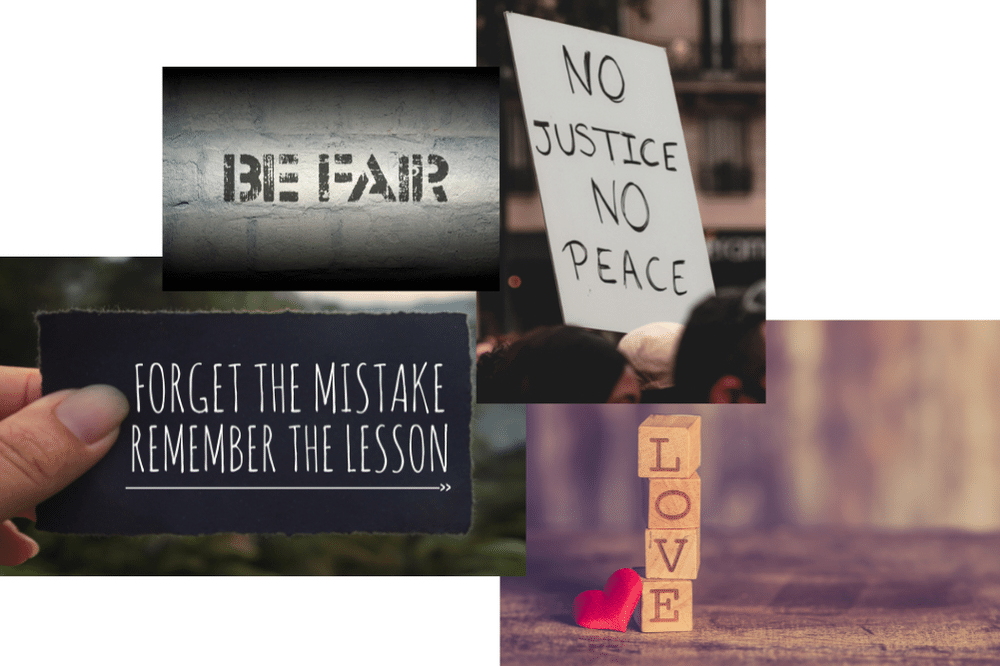



Source: Some Answered Questions
There are two kinds of retributive actions: One is revenge and retaliation, and the other—punishment and requital. An individual has no right to seek revenge, but the body politic has the right to punish the criminal. Such punishment is intended to dissuade and deter others from committing similar crimes. It is for the protection of the rights of man and does not constitute revenge, for revenge is that inner gratification that results from returning like for like. This is not permissible, for no one has been given the right to seek revenge. And yet, if criminals were entirely left to their own devices, the order of the world would be disrupted. So while punishment is one of the essential requirements of the body politic, the wronged and aggrieved party has no right to seek revenge. On the contrary, he should show forgiveness and magnanimity, for this is that which befits the human world.
The body politic, however, must punish the oppressor, the murderer, and the assailant, to dissuade and deter others from committing similar crimes. But that which is essential is to so educate the masses that no crimes will be committed in the first place; for a people can be so educated as to shrink entirely from any crime, and indeed regard the crime itself as the greatest chastisement and the most grievous torment and punishment. Thus no crimes would occur in the first place such that punishments would be required.
…But the body politic has the right to preserve and to protect. It holds no grudge and harbours no enmity towards the murderer, but chooses to imprison or punish him solely to ensure the protection of others. The purpose is not revenge but a punishment through which the body politic is protected. Otherwise, were both the victim’s heirs and the community to forgive and return good for evil, the wrongdoers would never cease their onslaught and a murder would be committed at every moment… The body politic is not prompted by ill will in meting out its punishment; it acts without prejudice and does not seek to gratify a sense of vengeance. Its purpose in inflicting the punishment is to safeguard others and to prevent the future commission of such vile actions.
…One final point: The body politic is engaged day and night in devising penal laws and in providing for ways and means of punishment. It builds prisons, acquires chains and fetters, and ordains places of exile and banishment, of torment and hardship, seeking thereby to reform the criminal, whereas in reality this only brings about the degradation of morals and the subversion of character. The body politic should instead strive night and day, bending every effort to ensure that souls are properly educated, that they progress day by day, that they advance in science and learning, that they acquire praiseworthy virtues and laudable manners, and that they forsake violent behaviour, so that crimes might never occur. At the present time the contrary prevails: The body politic is ever seeking to strengthen penal laws and securing means of punishment, instruments of death and chastisement, and places of imprisonment and exile, and then waiting for crimes to be committed. This has a most detrimental effect.
But if the masses were educated so that knowledge and learning increased day by day, understanding was broadened, perceptions were refined, morals were rectified and manners reformed—in a word, that progress was made with respect to every degree of perfection—then the occurrence of crime would subside.
Experience has shown that crime is less prevalent among civilized peoples—that is, among those who have acquired true civilization. And true civilization is divine civilization, the civilization of those who combine material and spiritual perfections. As ignorance is the root cause of crime, the more knowledge and learning advance, the less crime will be committed. …Therefore, the body politic must seek to prevent crimes from being committed in the first place, rather than devise harsh punishments and penalties.


![]()
![]()
Whether you are exploring the Bahá'í Faith or looking to become an active member, there are various ways you can connect with our community.
Please ensure that all the Required Fields* are completed before submitting.